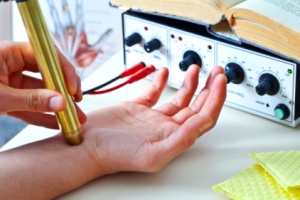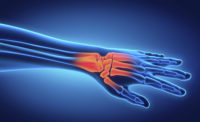 There are times when your family physician may not be able to give you the time and expertise needed to treat a variety of hand disorders.
There are times when your family physician may not be able to give you the time and expertise needed to treat a variety of hand disorders.
This is where the hand specialist comes in, and you can ask your family doc for a referral.
A hand specialist can help to treat a number of common conditions that occur and have an effect on the human hand, according to www.handspecialist.net. One of the most common conditions that may require the assistance of a hand specialist is Carpal Tunnel Syndrome.
Carpal tunnel is a syndrome that will typically take place when too much pressure is applied to the nerve that is located in the wrist. This particular nerve, referred to as the median nerve, is responsible for different movements. When this condition occurs, the hand of the individual may begin to become numb and it may also tingle. The condition is often caused by driving, sewing, writing, and even texting.
A separate syndrome, much like carpal tunnel syndrome, is Cubital Tunnel Syndrome. This condition will usually develop when too much pressure is applied to the ulnar nerve. The ulnar nerve is one of the primary nerves that allow the hand to function properly. A number of symptoms associated with the condition include weakness of the hand and pain.
Ganglion Cysts are basically cystic lumps that appear around the wrist and hands. The cyst will cause a swelling on the wrist, but the cyst may or may not be painful. When it does cause pain, the need for a hand specialist is clear. The actual cause of these cysts is currently unknown, although it is believed that damage and strain can both be factors.
Tennis & Golf Elbow are quite common -- conditions that are an inflammation of the tendons. If the condition continues to get worse, medical treatment may be necessary.
Arthritis, on the other hand, is the inflammation of different joints. It will usually take place in older individuals, especially as the bones become older and frailer.
Trigger Finger affects the tendons instead of the joints, but specifically the tendons of the fingers. It can become difficult to straighten the finger.
Remember, a specialist is experienced in a way that your normal doctor is not. A specialist is certified in what is needed to keep his or her specialization. These certifications include training in new techniques and familiarity with the latest procedures. These certifications are mandatory if the doctor wants to keep being called a specialist.



